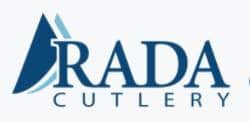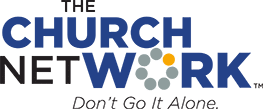Fund accounting is a specialized form of accounting that involves the tracking and reporting of financial information for separate funds or accounts. Each has a specific purpose for how the money can be used. Donors may set these restrictions with the church’s board or other stakeholders.
Unlike traditional accounting, which is primarily concerned with the financial health of an organization, fund accounting focuses on the financial activities of each individual fund. This allows churches to manage their finances, ensure compliance with legal and regulatory requirements, and demonstrate accountability more effectively.
Fund accounting applies the general rules of accounting principles and practices, as well as the specific regulations related to non-profit organizations like churches. It also requires specialized software and reporting systems to effectively manage and report on the financial activities of each fund.
In general, fund accounting is a critical component of financial management for churches. It is essential for ensuring transparency, accountability, and compliance with legal and regulatory requirements.
Traditional Accounting vs. Fund Accounting
Traditional and fund accounting differ in purpose, structure, and goals. While a company wants to demonstrate overall profit and financial health to shareholders, a non-profit organization using fund accounting shows transparency in fulfilling its missions and using funds for its designated purposes. Fund accounting will include separate financial statements for programs, funds, and missions.
While traditional accounting is suitable for tracking a business or organization’s financial performance, fund accounting is better suited for non-profit organizations that need to track the financial performance of individual funds or programs. By using fund accounting, non-profit organizations can improve transparency, compliance, donor tracking, and budgeting, as well as ensure donor funds are being used as intended.
Restricted vs. Unrestricted Giving
Unrestricted funds are resources that the organization can use at its discretion to fulfill its operational needs and further its mission. Donors typically contribute unrestricted funds without any specific restrictions on how the money should be used. These funds provide flexibility for the organization to allocate resources according to its priorities and immediate needs. Unrestricted funds can cover expenses such as salaries, utilities, program costs, and administrative expenses. They are not limited to a particular purpose or project.
Restricted funds, on the other hand, come with donor-imposed restrictions on their use. Donors may designate their contributions for specific programs, projects, or purposes outlined by the organization. These restrictions can be temporary or permanent. Examples of restricted funds include donations received for building campaigns, scholarships, specific outreach programs, or any other specific initiatives. The organization must use these funds in accordance with the donor’s intent or the designated purpose. Restricted funds are typically subject to legal and ethical obligations, and the organization must ensure that the funds are used as stipulated by the donor.
Fund accounting allows for the proper tracking and reporting of both unrestricted and restricted funds in order to ensure transparency and accountability. Each fund is treated as a separate accounting entity with its own set of financial records. This distinction allows the organization to accurately monitor the inflows, outflows, and balances of each fund, ensuring that resources are managed and reported in accordance with legal, regulatory, and donor requirements.
Challenges and Best Practices
Fund accounting in churches presents unique challenges due to the nature of their operations. Understanding and addressing these challenges is crucial for successful fund accounting. Here, we’ll explore common challenges and best practices in fund accounting to provide insight for church finance teams.
Establish Clear Policies and Procedures: Develop comprehensive financial policies and procedures that cover areas such as budgeting, expenditure approval, internal controls, and financial reporting. Clear guidelines ensure consistency and accountability in financial operations.
Segregation of Duties: Implement a system for segregation of duties to prevent fraud and errors. Divide financial responsibilities among different individuals to create checks and balances in the financial processes.
Regular Training and Education: Provide ongoing training and education to finance those involved in financial management. This helps them stay updated with best practices, regulatory changes, and software usage.
Effective Budgeting and Planning: Develop an annual budget and involve key stakeholders in the process. Regularly monitor budget performance, analyze variances, and adjust financial plans.
Robust Internal Controls: Implement strong internal controls to safeguard assets, ensure accuracy in financial recording, and prevent unauthorized transactions. Regularly evaluate internal controls to address any weaknesses.
Embrace Technology: Utilize accounting software designed for fund accounting to streamline financial processes, improve accuracy, and generate comprehensive reports. Leverage technology to automate routine tasks, enhance data security, and facilitate efficient financial management.
Managing the financial operations of a church can be complex and challenging. By adopting a fund accounting solution, you are empowering your church finance team with the right technology to effectively manage funds, generate accurate reports, and maintain financial transparency. This enables you to focus more on your mission and ministry, knowing that your financial operations are in capable hands.
Since 1987, Church Windows has served more than 12,000 churches of all denominations. From their approachable Technical Support Team to their highly capable Programmers and Trainers, the Church Windows family works daily to ensure efficiency in your workday, www.churchwindows.com.







